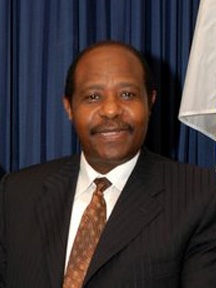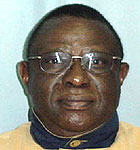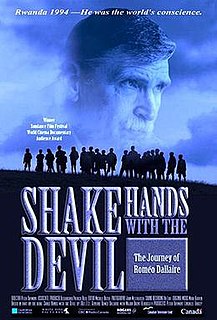 Human skulls at the Nyamata Genocide Memorial Centre |
| Part of a series on the |
| Rwandan genocide |
|---|
Parties responsible |
Resources |
This is a filmography for films and artistry on the graphic, theatrical and conventional, documental portrayal of the 1994 Rwandan genocide . In 2005 Alison Des Forges wrote that eleven years after the genocide films for popular audiences on the subject greatly increased "widespread realization of the horror that had taken the lives of more than half a million Tutsi". [1]
A filmography is a list of films related by some criteria. For example, an actor's career filmography is the list of films he or she has appeared in; a director's comedy filmography is the list of comedy films directed by a particular director. The term, which has been in use since at least 1957, is modeled on and analogous to "bibliography", a list of books. As lists filmographies are distinct from the cinematic arts of "videography" and "cinematography" which refer to the processes themselves, and which are analogous to photography instead.

The Rwandan genocide, also known as the genocide against the Tutsi, was a mass slaughter of Tutsi in Rwanda during the Rwandan Civil War, directed by members of the Hutu majority government between 7 April and 15 July 1994.

Alison Des Forges was an American historian and human rights activist who specialized in the African Great Lakes region, particularly the 1994 Rwandan genocide. At the time of her death, she was a senior advisor for the African continent at Human Rights Watch. She died in a plane crash on 12 February 2009.
- Hotel Rwanda (2004). Dramatic feature film about Paul Rusesabagina, a Kigali hotellier, and the events around the Hôtel des Mille Collines, a sanctuary for Tutsis and moderate Hutus after its owner shut his doors against the genocide. The film was nominated for multiple Academy Awards, is on the American Film Institute's list of the 100 most inspirational films of all time, and appears on the IMDB's Top 250 highest rated movies of all time. [2]
- Shooting Dogs (called Beyond the Gates in the US) (2005). A priest (John Hurt) and a teacher (Hugh Dancy) get caught up in the Rwandan genocide of 1994. Dramatic feature film directed by Michael Caton-Jones.
- Sometimes in April (2005). Dramatic feature film detailing events prior, during and after the genocide through the story of an intermarried Hutu-Tutsi family.
- A Sunday in Kigali (2006). Dramatic feature film based on the book
- Shake Hands with the Devil (2007). Dramatic feature film based on the Lieutenant-General Roméo Dallaire's book Shake Hands with the Devil: The Failure of Humanity in Rwanda (J'ai serré la main du diable: La faillite de l'humanité au Rwanda) (2003).
- Munyurangabo (2007). An orphan of the Rwandan genocide travels from Kigali to the countryside on a quest for justice (from IMDB). Directed by Lee Isaac Chung. Production: Almond Tree Films. Official Selection- Un Certain Regard, Cannes. Grand Jury Prize, AFI. [3]
- The Day God Walked Away (2009)
- Kinyarwanda (2011). Dramatic feature that tells the story of hope, redemption and religious tolerance in the midst of the 1994 Rwandan genocide. It premiered at the 27th Sundance Film Festival in January 2011 where it won the World Cinema Dramatic Audience Award. [4] [5]

Hotel Rwanda is a 2004 British–Italian–South African historical drama film directed by Terry George. It was adapted from a screenplay co-written by George and Keir Pearson, and stars Don Cheadle and Sophie Okonedo as hotelier Paul Rusesabagina and his wife Tatiana. Based on the Rwandan genocide, which occurred during the spring of 1994, the film documents Rusesabagina's acts to save the lives of his family and more than a thousand other refugees by providing them with shelter in the besieged Hôtel des Mille Collines. Hotel Rwanda explores genocide, political corruption, and the repercussions of violence.

Paul Rusesabagina is a Rwandan humanitarian who, while working as a house manager at the Hôtel des Mille Collines in Kigali, hid and protected 1,200 Hutu and Tutsi refugees from the Interahamwe militia during the Rwandan genocide. None of those refugees were hurt or killed during the attacks.

The Hôtel des Mille Collines is a large hotel in Kigali, Rwanda. It became famous after 1,268 people took refuge inside the building during the Rwandan Genocide of 1994. The story of the hotel and its manager at that time, Paul Rusesabagina, was later used as the basis of Terry George's film Hotel Rwanda in 2004.

![United Nations Assistance Mission for Rwanda Failed UN Mission to mediate peace in Rwanda leading up to the [[Rwandan genocide]]](https://upload.wikimedia.org/wikipedia/commons/thumb/5/52/Emblem_of_the_United_Nations.svg/320px-Emblem_of_the_United_Nations.svg.png)









